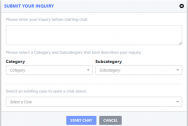What an HR Call Center Can Do for Companies of Any Size

Believe it or not, the benefits of an HR call center are not only limited to enterprise-level organizations. The value of being able to help employees easily access their HR information and get answers to their questions can also benefit small- and medium-sized businesses by reducing stress on HR administrators and producing crucial call-tracking data.
For starters, an HR call center is a valuable HR resource that frees administrators to focus on more demanding tasks. As an HR data system, a call center can provide meaningful information such as the frequency of employee calls regarding specific HR topics and the number of calls needed to resolve cases.
With this kind of HR data, HR leaders in organizations of any size get greater insight into how policies and benefits are being communicated. You can determine where messages and communication to employees need to be improved, and where call center processes could use some tweaking.
A call center gives HR managers critical trend analyses that produce valuable metrics, such as the reasons for calls, resolution times, customer service representative (CSR) effectiveness, training issues that need attention, and more.
When metrics are available in a concise dashboard, they’re even more effective. Integrating the system’s metrics with a series of reporting tools can reduce calls over time by identifying policies, procedures, and guidelines that needed to be presented more clearly to employees.
HR managers and company leadership can take proactive measures to address potential issues with a wiki, employee documentation, or CSR training. By eventually reducing the volume of calls, your call center will provide a valuable return on investment.
You can download a case study to learn how LBi HR HelpDesk transformed employee services and HR effectiveness for one North American insurance company.
Here are a few ways that HR call center processes — like those within the LBi HR HelpDesk system — provide benefits for companies of nearly any size.
Automated prescreening. When it prescreens calls, an automated HR call center directs each call to the most appropriate HR professional or call center representative, based on the employee’s selection or area of concern. This saves time for the employee and reduces the resolution tiers within HR.
Also, by prescreening, an automated HR call center tracks how many callers choose certain prerecorded answers or specific prescreening paths (e.g., they need to know the location of the HR office). This is good data to help decide where to improve or expand employee communication — topics or concerns that might benefit from more attention.
Measuring HR effectiveness and seeing trends. Call centers have various methods for tracking the effectiveness of their programs. One common practice is to ask at the end of the process whether a participant’s questions were resolved. Other measurements of effectiveness that call center data can yield include the number of calls being taken related to a specific topic.
The system can also be used tp predict trends that are important to employees and that HR should be aware of: an uptick in calls related to a specific area of benefits or an increase in calls at a time of year other than during open enrollment.
HR efficiency. Because call centers track the time it takes for an employee to speak with a representative, your organization can work toward goals for heightened efficiency and put real metrics into your evaluation.
Other measurements can also give any organization valuable data for seeing where HR can be more efficient in responding to employee needs. Examples are the average length of all calls compared with the length of calls about specific questions or areas of concern, or the number of calls during different times of the day or days of the week.





An HR call center is an invaluable asset for companies of all sizes, not just large enterprises. This blog does a great job of highlighting how HR call centers streamline processes, enhance communication, and provide critical data for improving employee support. By automating prescreening and tracking call trends, businesses can proactively address HR concerns while improving efficiency. The ability to measure HR effectiveness through real-time metrics is a game-changer, helping organizations refine policies and enhance employee experiences. A well-integrated HR call center is truly a strategic investment in workforce satisfaction and operational success!